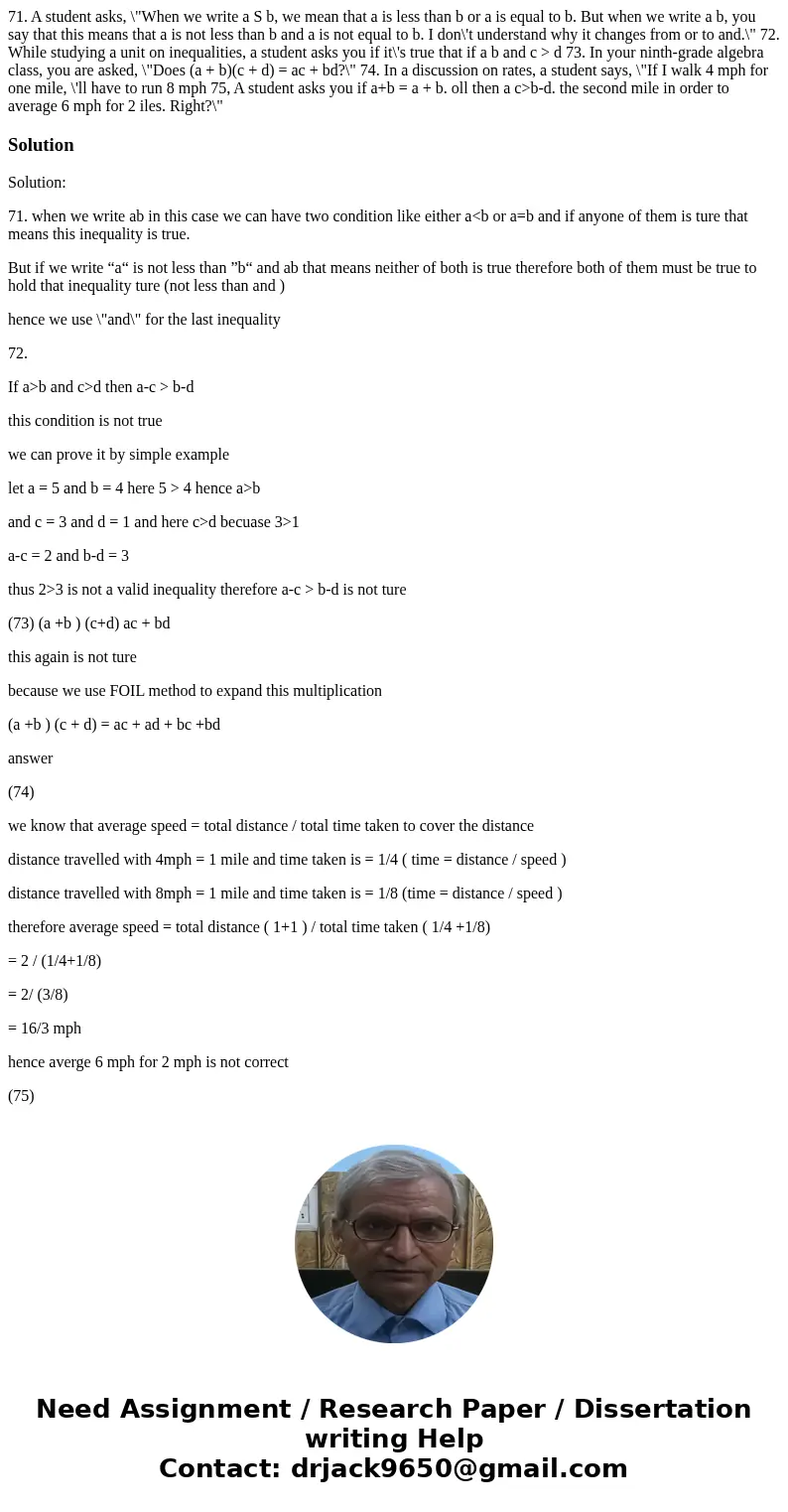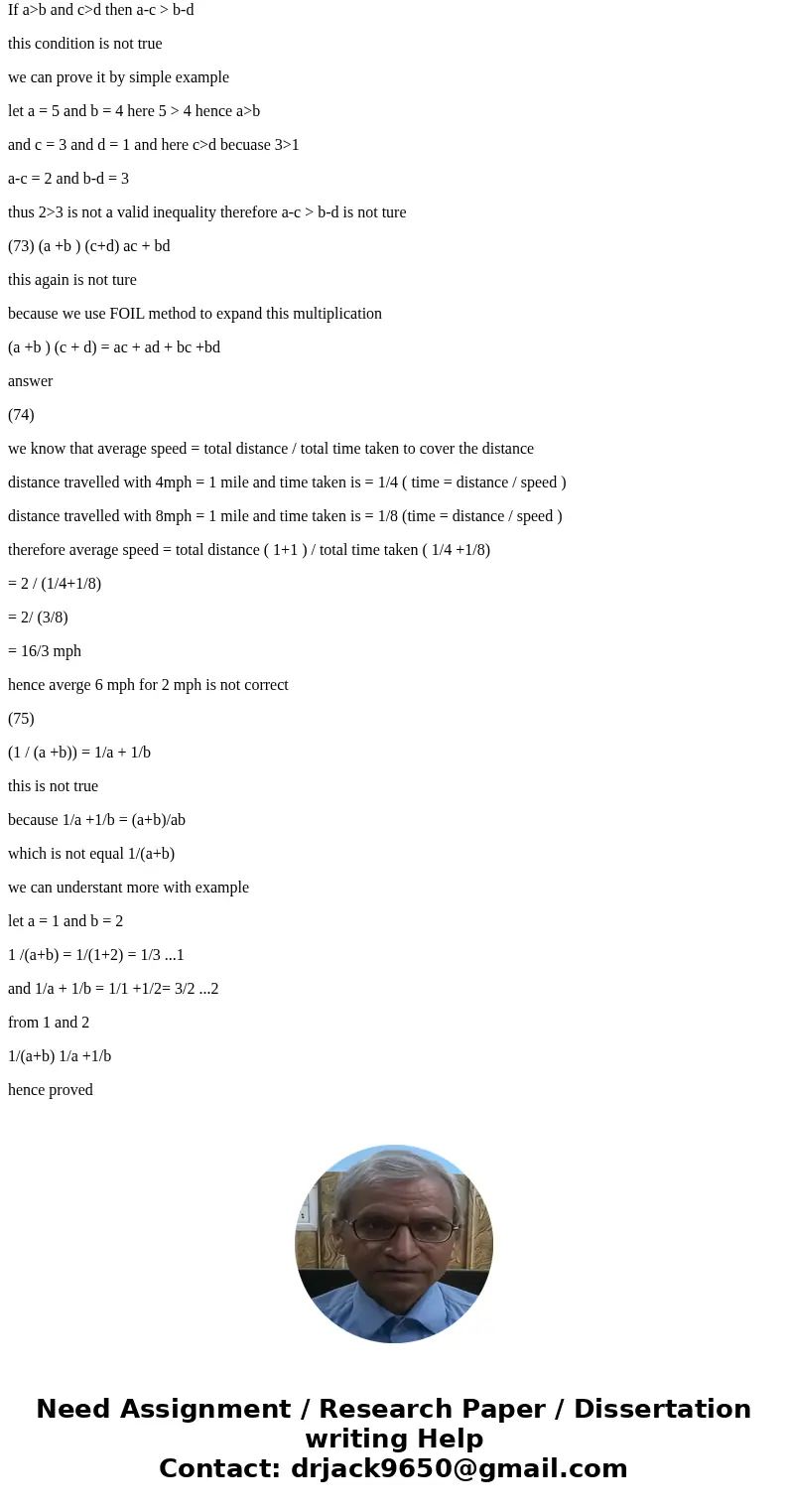71 A student asks When we write a S b we mean that a is less
Solution
Solution:
71. when we write ab in this case we can have two condition like either a<b or a=b and if anyone of them is ture that means this inequality is true.
But if we write “a“ is not less than ”b“ and ab that means neither of both is true therefore both of them must be true to hold that inequality ture (not less than and )
hence we use \"and\" for the last inequality
72.
If a>b and c>d then a-c > b-d
this condition is not true
we can prove it by simple example
let a = 5 and b = 4 here 5 > 4 hence a>b
and c = 3 and d = 1 and here c>d becuase 3>1
a-c = 2 and b-d = 3
thus 2>3 is not a valid inequality therefore a-c > b-d is not ture
(73) (a +b ) (c+d) ac + bd
this again is not ture
because we use FOIL method to expand this multiplication
(a +b ) (c + d) = ac + ad + bc +bd
answer
(74)
we know that average speed = total distance / total time taken to cover the distance
distance travelled with 4mph = 1 mile and time taken is = 1/4 ( time = distance / speed )
distance travelled with 8mph = 1 mile and time taken is = 1/8 (time = distance / speed )
therefore average speed = total distance ( 1+1 ) / total time taken ( 1/4 +1/8)
= 2 / (1/4+1/8)
= 2/ (3/8)
= 16/3 mph
hence averge 6 mph for 2 mph is not correct
(75)
(1 / (a +b)) = 1/a + 1/b
this is not true
because 1/a +1/b = (a+b)/ab
which is not equal 1/(a+b)
we can understant more with example
let a = 1 and b = 2
1 /(a+b) = 1/(1+2) = 1/3 ...1
and 1/a + 1/b = 1/1 +1/2= 3/2 ...2
from 1 and 2
1/(a+b) 1/a +1/b
hence proved


 Homework Sourse
Homework Sourse